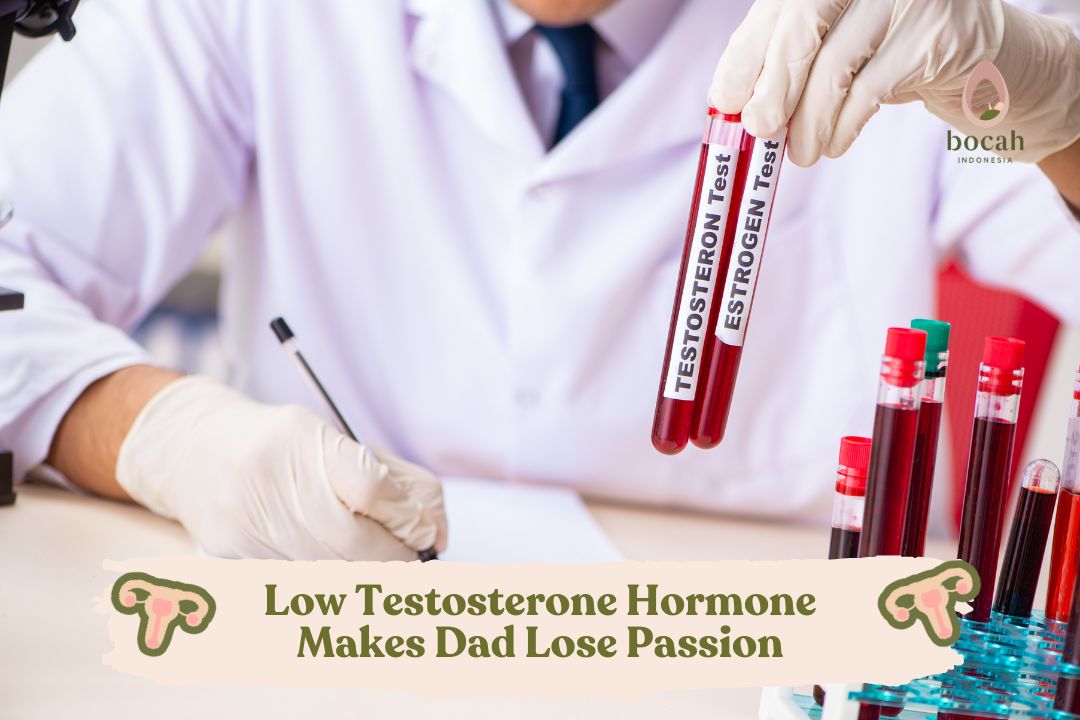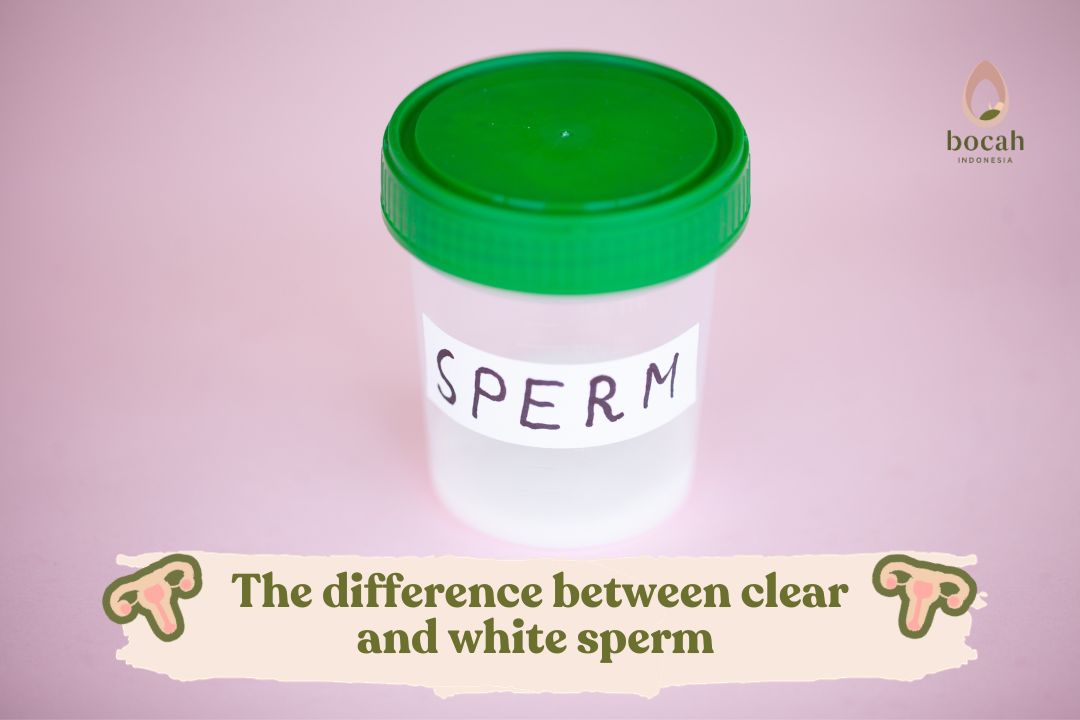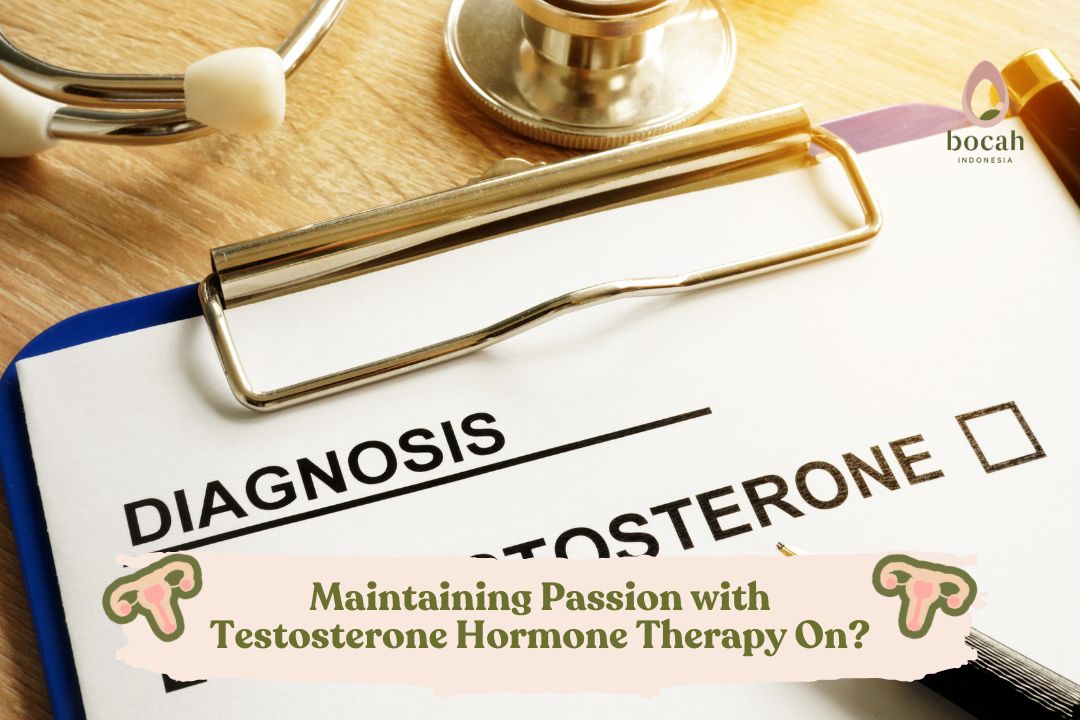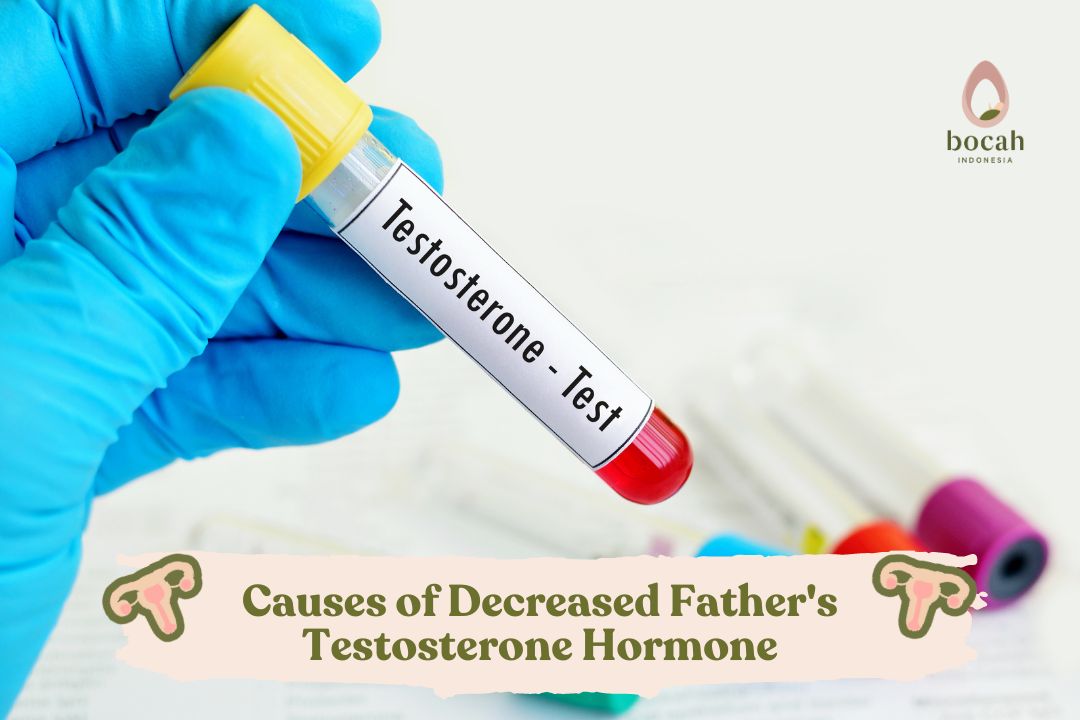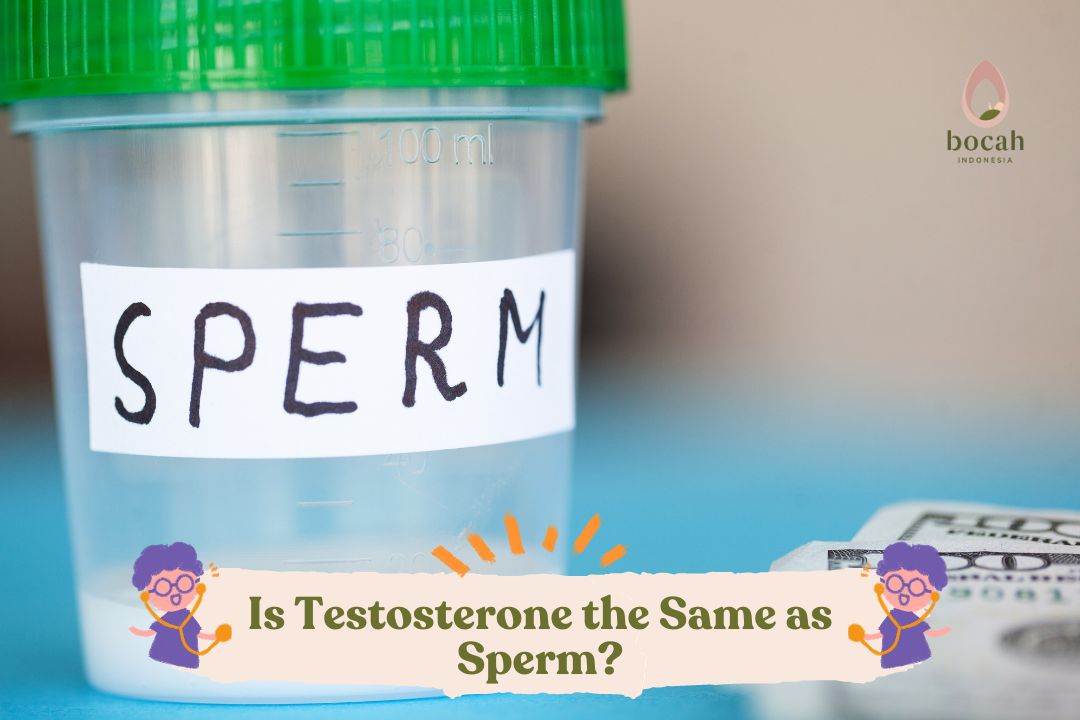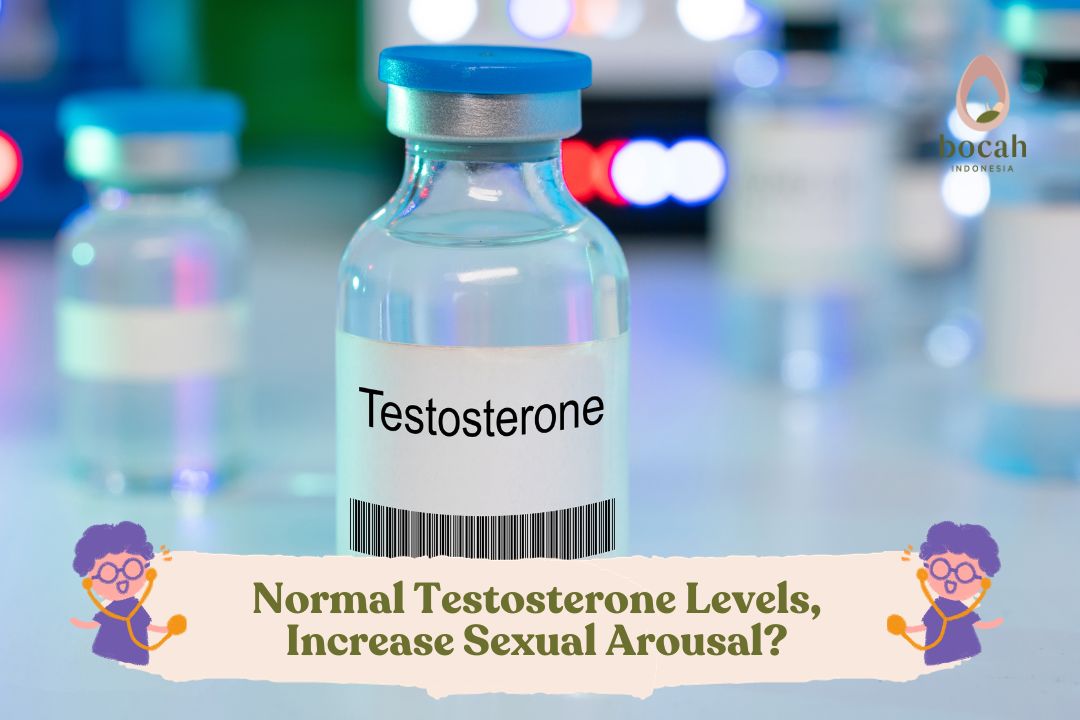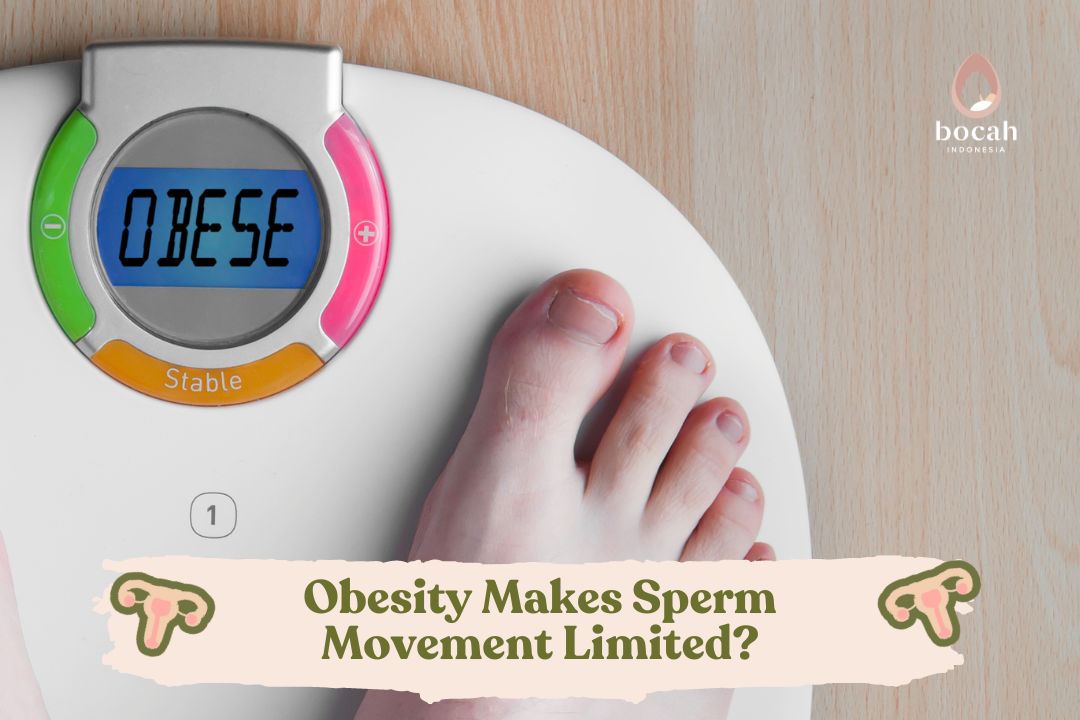High Testosterone Hormone Makes Dad Bite His Fingers
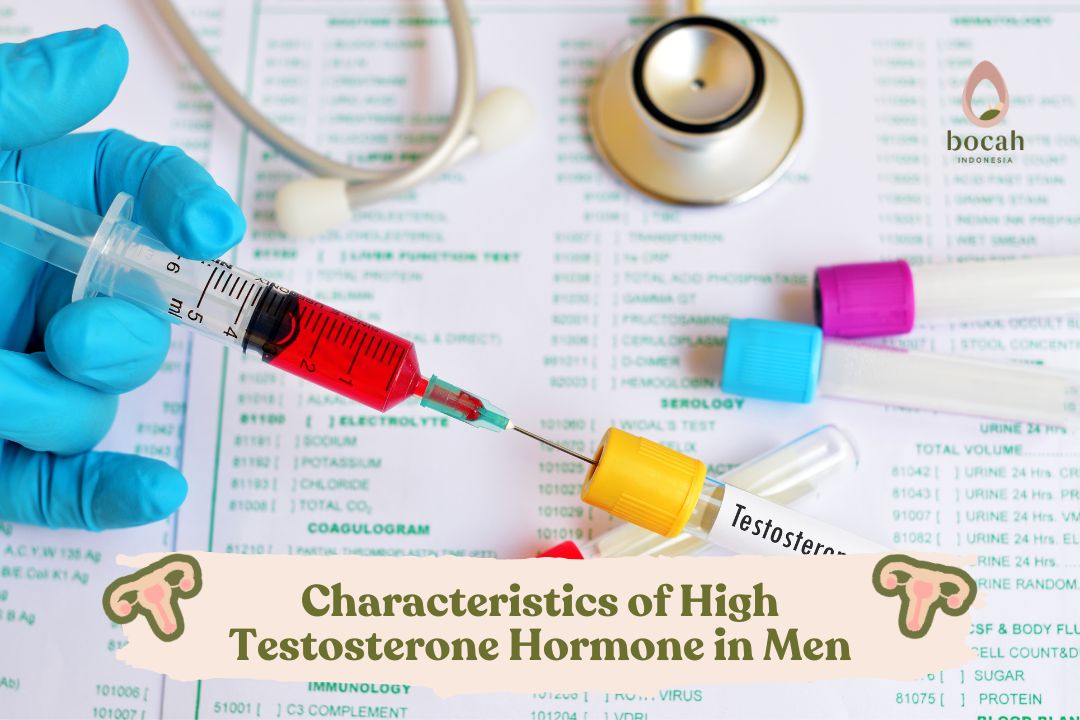
High testosterone hormone levels can cause serious problems, such as benign prostatic hyperplasia (BPH).
For dads, testosterone functions include regulating libido, bone and muscle mass, and sperm production. Moms also have testosterone hormones, although in smaller amounts. In moms, testosterone helps in the growth and maintenance of reproductive tissues and bone mass.
Testosterone is important for health, but excessively high levels can increase the risk of health problems, such as prostate gland enlargement in dads. This article will comprehensively discuss the characteristics of high testosterone hormones in dads and their causes.
Signs of High Testosterone Hormone in Men
Normal or average testosterone levels in men vary. In general, the normal range of testosterone for dads is around 270-1070 ng/dL, with an average level of about 679 ng/dL.
Testosterone levels peak around the age of 20 and then gradually decline. Testosterone levels above or below the normal range are considered imbalances. Some researchers consider the healthiest testosterone levels to be between 400-600 ng/dL.
Tanya Mincah tentang Promil?
High testosterone can also play a role in the development of prostate cancer. Although dads need to know that testosterone does not cause prostate cancer, it can help strengthen it once it occurs.
Reducing testosterone levels can help reduce the risk of recurrence or progression of prostate cancer. If dads have very high testosterone levels, they may experience:
Acne
Aggressive or risky behavior
Excessive body hair growth
Frequent headaches
Possible heart or liver problems
Risk of high blood pressure (hypertension)
Dads may also have a high sexual desire (libido)
Increased appetite
Issues with fertility or infertility
Dads may experience insomnia
Low sperm count
Mood swings
Prostate enlargement, which can cause difficulty urinating
Swelling in the legs
Weight gain
These symptoms of high testosterone in dads can vary from person to person. Some may experience only a few of these symptoms, while others may have several.
Causes of High Testosterone Hormone in Dads
Several factors can contribute to high testosterone levels in dads. Understanding the underlying causes can help address the issue and manage testosterone levels.
1. Pituitary Gland Disorders:
The pituitary gland produces hormones that affect testosterone production. If dads experience disorders of the pituitary gland, such as acromegaly or Cushing syndrome, it can lead to increased testosterone production.
2. Adrenal Tumors:
Another factor that can cause dads to have high testosterone hormones is tumors on the adrenal glands, whether benign or malignant. These tumors can trigger increased hormone production, including testosterone.
3. Congenital Adrenal Hyperplasia:
Besides tumors, high testosterone hormones can also occur if dads have a genetic disorder that causes the adrenal glands to produce too much hormone, including testosterone.
4. Use of Specific Medications:
The use of certain drugs, such as fluoxymesterone (Halotestin) or anabolic steroids, can increase dads’ testosterone levels.
5. Testosterone Supplementation:
The fifth factor that can cause high testosterone hormones is the use of supplements or testosterone replacement therapy that can lead to an increase in hormone levels.
6. Lifestyle or Diet:
Lifestyle factors such as diet, level of physical activity, and stress levels can affect testosterone levels. Some studies suggest that a healthy diet and exercise can support good hormonal balance.
7. Age and Puberty:
In general, dads’ testosterone levels can peak at a young age and then gradually decline with age.
8. Genetics:
The last factor that can cause high testosterone hormones in dads is genetics, which can play a role in regulating testosterone levels in individuals. It’s important to remember that most of the time, an increase in testosterone levels is not a direct sign of disease.
However, if there are concerns about high testosterone levels and their impact on health, consulting a doctor can help determine the cause and whether further action is needed.
The Influence of Testosterone Hormone on Pregnancy Program
If Dad’s testosterone levels are very high, this can also have a negative impact on the pregnancy program that is being undertaken with Mom. Some potential effects of high testosterone levels in men related to reproductive issues include:
Reduced Sperm Production
High testosterone levels in Dad can inhibit sperm production in the testicles. This can result in a low sperm count and reduce the chances of fertilizing an egg.
Disruption of Hypothalamus and Pituitary Function
High testosterone levels can also affect the overall balance of reproductive hormones by influencing the hypothalamus and pituitary gland, two critical organs in the reproductive system.
Disruption of Reproductive Hormone Cycles
Proper functioning of reproductive hormones requires the right balance. Elevated testosterone levels can lead to an imbalance in reproductive hormones, which can hinder ovulation in Mom and sperm production in Dad.
Testicular Function Impairment
Furthermore, the high testosterone levels in the pregnancy program may be affected. Elevated testosterone levels can disrupt normal testicular function, inhibiting the production of healthy spermatozoa.
Libido Disorders
Although some researchers suggest that high testosterone can be associated with increased libido, at very high levels, this hormone can lead to libido disorders or erectile dysfunction.
Treatment for High Testosterone
The type of treatment for high testosterone levels will depend on the underlying cause of the imbalance.
Discontinuing the Use of Steroids or Medications
If Dad’s high testosterone levels are caused by the use of anabolic steroids or testosterone supplementation, a doctor may recommend discontinuing the use of these drugs and seeking alternative treatments.
In one study, it was found that 88.4% of men who took testosterone supplements did not produce sperm. However, after discontinuing the use of supplements for 6 months, 65% of these men began producing sperm again.
Treatment for Tumors
In rare cases, tumors can produce sex hormones that can increase testosterone levels. If a tumor contributes to high testosterone levels, Dad may require surgery.
If the tumor is malignant, Dad may require other treatments, including surgery, chemotherapy, or radiation therapy.
Medication Use
Some medications can be used to control testosterone levels, depending on the underlying condition. Examples of medications include steroid synthesis inhibitors such as ketoconazole for treating Cushing syndrome or alpha-reductase inhibitors such as finasteride for treating benign prostatic hyperplasia.
Hormone Therapy
If testosterone levels need to be regulated within the context of hormone therapy, a doctor may consider approaches such as testosterone replacement therapy or gonadotropin-releasing hormone (GnRH) analog therapy, depending on the patient’s health condition.
Lifestyle Changes
Sometimes, lifestyle changes such as a healthy diet, regular exercise, and stress management can help control testosterone levels. To determine the appropriate treatment for high testosterone, Dad should consult with a doctor.
High testosterone levels in Dad can potentially hinder Mom’s ability to become pregnant due to fertility issues. To address this, it’s advisable for both Mom and Dad to consult with an obstetrician. Read more information about the pregnancy program at Bocah Indonesia.
Source:
- Batrinos, M. NCBI. Testosterone and Aggressive Behavior in Man. International Journal of Endocrinology and Metabolism. 2012. 10(3), pp. 563-568. https://www.ncbi.nlm.nih.gov/pmc/articles/PMC3693622/
- Pietrangelo, A. Healthline (2014). The Effects of Testosterone on the Body.
- Davis, C. MedicineNet. High and Low Testosterone Levels in Men.
- Leonard, Jayne (2023). What are the signs of high testosterone in males?


